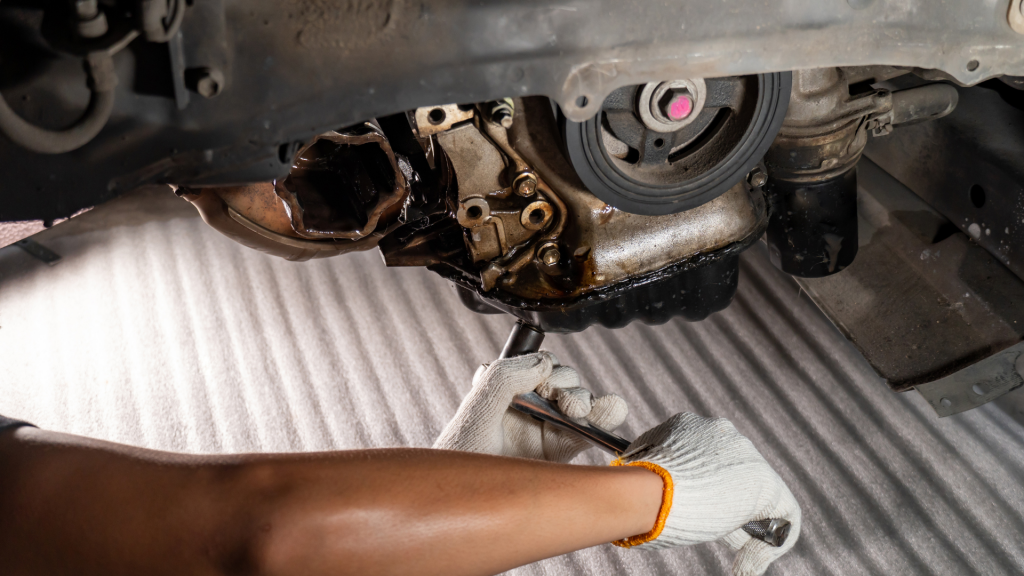
Recognizing an oil leak car is not always easy, but it is incredibly important. Oil is the life blood of your engine. As soon as a leak occurs, the lubrication of essential components is compromised. In this blog, you will learn how to detect a leak early, what the most common causes are and how to fix it before permanent engine damage occurs.
The clearest clue is a dark, oily stain under your car. A strong smell of oil near the engine or oil on the underside of the engine block can also indicate leakage. Sometimes you only notice it by having to refill oil more often. Also watch for smoke development or an illuminated oil light.
The sump pan, oil filter, valve cover gasket, timing chain cover and crankshaft seal are known culprits. Oil coolers and turbochargers can also leak. In older cars, dried out or worn gaskets are often the cause. If you drive a lot of short distances, condensation in the oil can build up extra pressure, causing weak spots to leak.
Not every leak is acutely dangerous, but any oil that disappears must be replenished. Otherwise, you risk damage from too low an oil level. Severe leaks can lead to loss of oil pressure and even engine stalling. So taking action quickly is crucial.
Check the oil level regularly and visually inspect the engine compartment and the ground where your car is parked. If necessary, use cardboard under the engine to locate the leak more quickly. Do you see oil running down the engine block or on the bottom plate? If so, it's time to have the cause determined.
Once you have detected the leak or doubt its severity, it is wise to have your car inspected. Small gaskets or seals can be replaced relatively inexpensively. In any case, don't keep driving for too long with a leak, because what starts small can end in engine damage worth thousands of dollars.
If you can't go to the garage right away yet, make sure you fill up with enough oil. Always use the right oil, e.g. Premium Performance 5W30, and check the level daily. Drive slowly and avoid long distances until the problem is resolved.
A well-maintained engine is less likely to leak. Have oil and filters changed on time and use quality oil from our webshop. Need help or want to know more about maintenance? Then visit our about us page or find our location in Weert.
1. How can I be sure it is oil and not another liquid?
Engine oil is usually dark and feels oily. Brake or coolant is lighter in color and has a different smell.
2. Can I drive with an oil leak?
Only if the leak is small and you keep a close eye on the oil level. But it's still a risk.
3. Can I repair an oil leak myself?
Small leaks such as a worn gasket can be replaced yourself if you are handy. When in doubt: leave it to a garage.
4. What does it cost to repair an oil leak?
Depends on the cause. A valve cover gasket replacement usually costs between €100 and €250.
5. How quickly can an oil leak cause engine damage?
It depends on the severity. With severe oil loss, things can go wrong within just a few miles.
6. What should I pay attention to when checking?
Look for oil on the ground, on the underside of the engine, or wet spots around gaskets and hoses.
7. Can an oil filter leak?
Yes, especially if it is not tightened properly or the rubber washer is damaged.
8. Is additive or stop-leak a solution?
For very small leaks temporarily, yes. But don't see it as a permanent solution; always have it repaired.